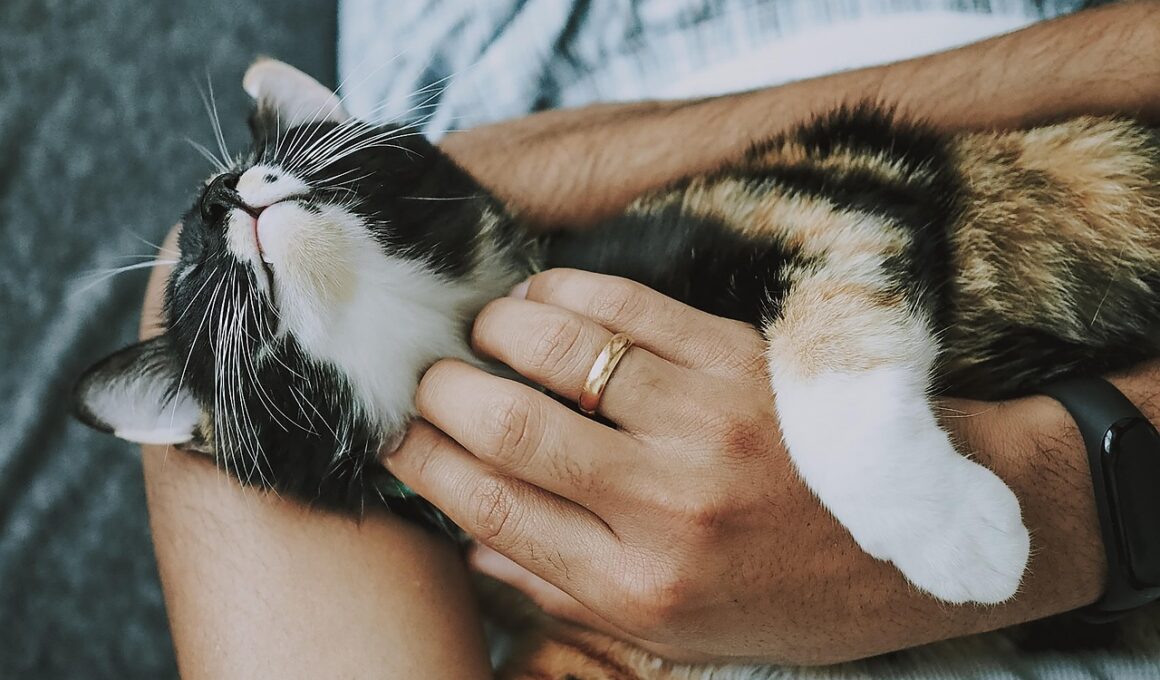Treating Broken Teeth in Cats: What You Need to Know
As a cat owner, it is crucial to be aware of the common dental issues that can affect your furry friend, including broken teeth. Cats often experience dental trauma due to various reasons, such as chewing on hard objects, accidents during play, or even fights with other animals. Detecting broken teeth can sometimes be challenging, as cats can be adept at hiding their pain. Regular dental check-ups with your veterinarian can identify problems early on. If you notice your cat avoiding food, drooling excessively, or exhibiting signs of discomfort, it might be time to investigate. Broken teeth can lead to more severe issues if left untreated, including infections and severe pain. It is essential to act quickly if you suspect that your cat has experienced dental trauma. Immediate attention not only alleviates pain but also prevents further complications. Understanding the underlying causes of broken teeth can help you take preventive measures. For instance, providing appropriate toys for your cat to chew on can reduce the risk of trauma. Pay close attention to your cat’s chewing habits to enhance their dental health.
Understanding the Types of Dental Trauma
There are various types of dental trauma that can impact your cat’s well-being. The most common type involves the fracture of the tooth, which can affect the outer layer called enamel, as well as the underlying dentin and pulp. Enamel fractures often occur when a cat bites down too hard on an object, while more severe fractures can expose the tooth’s pulp, leading to significant pain and infection. Another type of trauma is luxation or the loosening of the tooth from its socket, usually due to injury or impact. Understanding these injuries is vital for treatment options. If you notice any signs of trauma, it is essential to visit an animal dentist as soon as possible for evaluation and diagnosis. In more severe cases, your veterinarian may recommend tooth extraction if the damage is too extensive. Identifying the type of trauma helps your veterinary professional develop a tailored treatment plan. Early dental care can prevent additional health complications and improve the overall quality of life for your cat.
When it comes to treating broken teeth in cats, your vet will likely perform diagnostic imaging to assess the extent of the damage. X-rays can provide insights into whether the fracture extends into the tooth’s root and how best to proceed. Based on the findings, treatment options may include dental bonding, crowns, or extraction, depending on how severely the tooth is damaged. For minor fractures, a vet may suggest dental sealants to protect the tooth and maintain its structure. If the tooth requires removal, your veterinarian will perform the extraction under anesthesia to ensure your cat’s comfort. Post-treatment care is crucial to promote healing and prevent infection. Your vet may prescribe antibiotics or pain relief medications. Be sure to adhere strictly to their post-operative care instructions. Additionally, offering soft food and keeping up with dental hygiene can help your cat recover more effectively. Scheduled follow-up appointments are essential to monitor the healing process and ensure that your cat’s mouth remains infection-free after trauma treatment.
Signs of Dental Pain in Cats
Recognizing the signs of dental pain in your cat requires careful observation. You may notice behavioral changes or alterations in eating habits when dental trauma occurs; these are often signs of discomfort. Cats may shy away from their usual dry food and prefer wet forms due to sensitivity. Other indicators may include excessive drooling, pawing at their mouth, and a lingering bad breath, which could indicate an underlying condition. You may also observe your cat becoming more irritable or withdrawn than their usual self. Behavioral changes such as aggressive tendencies or hiding more frequently compared to their normal disposition can also point to potential pain. If you suspect dental issues, it’s crucial to contact your veterinarian as soon as possible. They possess the necessary training to evaluate your cat’s dental health more thoroughly. Allowing your pet to suffer will only exacerbate their discomfort, so prompt action is vital in these situations. Being proactive and aware of your cat’s behavior can help catch issues early and improve treatment outcomes.
A proper dental care routine for your cat can ensure their oral health and potentially prevent broken teeth. Regular brushing, using cat-friendly toothpaste, keeps plaque buildup at bay and maintains gum health. Additionally, consider providing dental treats that can help scrub the teeth as your cat chews. Many cat owners neglect to check their pet’s teeth frequently; however, routine examinations can identify early signs of dental problems. If your cat is not accustomed to having their teeth brushed, introduce them slowly using small, gentle strokes. Dental check-ups should ideally be done once a year; however, older cats may benefit from more frequent visits. Consult your veterinarian for personalized advice based on your cat’s age, lifestyle, and overall health. Monitoring your cat’s diet is equally important, as a balanced diet supports their dental and overall health. Incorporating crunchy foods promotes natural tooth cleaning, minimizing the chances of trauma. By establishing a comprehensive dental care plan, you can help your cat avoid many painful dental injuries and promote a longer, healthier life.
Professional Dental Care Options
If your cat experiences a broken tooth, seeking professional dental care is essential to ensure their recovery and health. Several treatment options are available, and the right choice will depend on the severity of the trauma. For minor fractures, dental bonding allows for a quick fix, while more severe cases may require a root canal procedure to save the tooth. In some situations, extraction may be necessary to eliminate pain and prevent further complications. Your veterinarian may recommend a veterinary dental specialist for complex cases. Dentistry specialists possess advanced skills and technology for intricate dental procedures. During your veterinary visit, be prepared to discuss your cat’s medical history and any notable behavioral changes you’ve observed. This information helps the vet formulate a tailored treatment plan. Regular dental cleanings and examinations by professionals are also important to maintain oral health. Preventive care can significantly reduce the risks associated with dental accidents and trauma. Ultimately, professional guidance ensures that your cat remains in optimal health and avoids suffering from untreated dental issues.
Your cat’s overall wellbeing hinges on proper dental care, especially when dealing with broken teeth. Understanding the signs and symptoms of dental trauma empowers you to act promptly. Above all, don’t attempt to treat a broken tooth at home without professional guidance, as inadequate care can lead to severe complications. Instead, always seek medical advice and follow your veterinarian’s recommendations. It’s vital to create a suitable dental care routine that includes gentle brushing, appropriate chew toys, and frequent veterinary check-ups. Keeping your cat’s teeth and gums healthy can significantly reduce the risk of dental injuries over time. Awareness of potential hazards in your cat’s environment can further protect their dental health. Ensure your home is free from sharp or hard objects that your cat might chew. Educate family members about safe play and supervision during rough activities. Additionally, monitor the condition of your cat’s teeth regularly to catch any changes early. With the right precautions and knowledge, you can greatly enhance your cat’s dental health and quality of life. Stay vigilant and proactive with your cat’s dental care.
Conclusion
In conclusion, identifying and treating broken teeth in cats is essential for maintaining their health and comfort. Understanding the types of dental trauma, recognizing the signs, and knowing when to seek professional help can make all the difference. Regular dental care routines can prevent many issues from arising in the first place, while timely intervention can minimize suffering should an injury occur. Always remember that your veterinarian is a crucial partner in your pet’s health journey, capable of providing critical services tailored to your cat’s needs. Maintaining a healthy mouth is key to enhancing your cat’s quality of life and ensuring they stay happy and comfortable. The stakes are high when it comes to dental health, so don’t hesitate to take action if something seems amiss. By staying informed, you can give your feline friend a better chance at enjoying a pain-free life. Be proactive in their dental care to ensure that any signs of trouble are addressed efficiently and effectively. With dedication and knowledge, you can help your cat lead a healthier and happier life.


